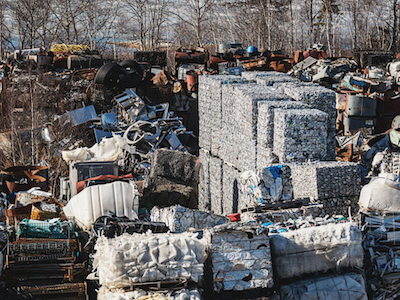Market
February 22, 2024
Scrap prices edge down in the US, while remain steady in Brazil
U.S. scrap prices fell again this month, as ample availability and tepid demand put downward pressure on the market. Although winter weather hindered flows to scrap yards in some regions, mills were able to complete their buy programs with ease. Furthermore, export prices were largely stable m/m as Turkish-finished steel demand remained weak, while costs stayed elevated. In all, #1 busheling prices fell $30/l.ton m/m while that of #1 HMS decreased $20/l.ton and shredded scrap price was flat m/m.
The Detroit market settled more easily than in January. Mills completed their purchases without issue, despite seasonally lower traffic to scrap yards. Prime grades were readily available, and slower demand in the region pulled prices down. In Chicago, buyers finalized their orders quickly as production remained largely stable m/m. A milder winter thus far has meant easier shipping for dealers, but inbound flows to scrap yards are expected to stay limited.
Activity in the Northeast was limited as local mills had reduced order books for February. The Pittsburgh market showed more resilience than others, with primes down only $10/l.ton. However, #1 HMS rose $10/l.ton, while shredded scrap fell $10/l.ton. Nonetheless, demand remained sluggish, and dealers were mostly preoccupied with completing orders.
Negotiations were still ongoing in the South and South Central regions, though demand decreased m/m. Flows are down seasonally, but some scrap yards started to rebuild inventory following a bout of winter weather. Mills were well-stocked and kept steel output largely in line with demand.
Export prices were mostly unchanged as Turkish mills were unwilling to accept higher offers given sluggish downstream demand. Buying interest for Turkish HR coil and rebar was weak both domestically and for export. Costs are still running high for Turkish mills, lowering competitiveness of price offers to Europe, coupled with fewer sales to Israel and Yemen.
On finished steel, U.S. HR coil softened in recent weeks amid rising inventory levels and shorter lead times, in addition to a lack of buying interest. Long products prices in the U.S. were flat m/m, as demand remained seasonally weak, and the recent volatility in scrap prices caused several buyers to hold off purchases to see how the February market settled.
In Brazil, domestic scrap price was stable m/m at BRL 1,200/t, as demand has not improved yet, and prices bottomed out due to collection costs. Brazilian mills increased long product prices in February, though it remains to be seen if demand will improve in the coming weeks. Market participants believe prices will rise after the carnival celebration alongside increased demand and higher production.






